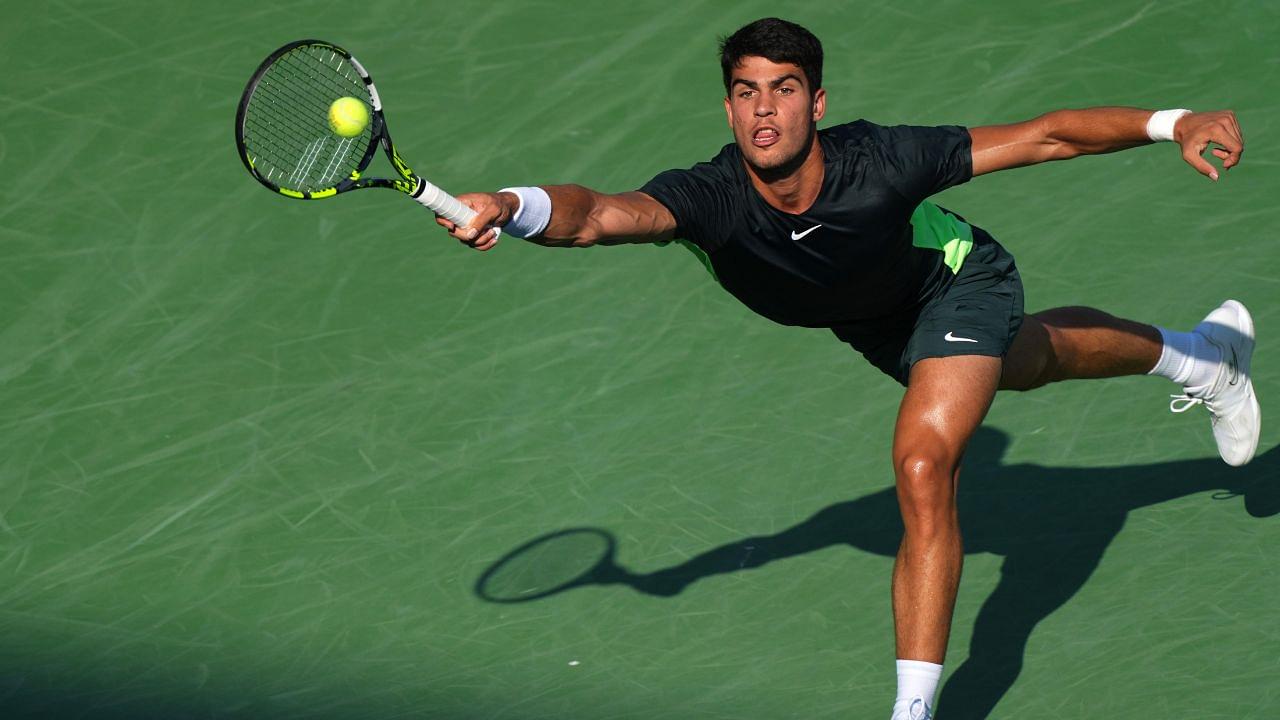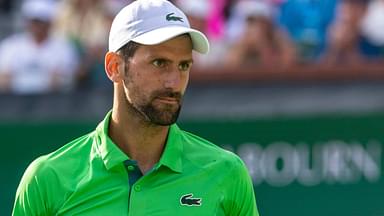Carlos Alcaraz and Novak Djokovic played out a match for the ages in the final of the Cincinnati Open. Alcaraz got a taste of his own medicine as Djokovic forced the first seed to change his approach to the game in the final. The Spaniard, who often forces his opponents to modify their gameplan, admitted he had to incorporate changes to his game against Djokovic. The Serb, however, prevailed 7-5, 6-7(7-9), 6-7 (4-7) to clinch his third Cincinnati title.
The epic match between the top two seeds lasted nearly four hours on a hot Sunday afternoon. Not only did Djokovic meddle with Alcaraz’s game plan and shot selection, but also pushed the Spaniard to the limits of his physicality. He was forced to change his game and move around a lot more than he would have expected to.
Carlos Alcaraz forced by Djokovic to change his basic strategy
After the exhausting match, Alcaraz admitted that it was a difficult match and it was tough to be running for every point. The World No.1 discussed how he changed his baseline gameplay to adopt a serve-and-volley approach. The serve-and-volley is a technique that is not seen often these days. It involves the server rushing up to the net after serving to volley the return, attempting to rush the opponent and close the point quickly.
Most players today, including Alcaraz, prefer playing from the baseline after serve. However, with Djokovic relentless and resilient, Alcaraz was forced to switch things up. He managed to save a couple of match points with the serve-and-volley as well.
Speaking at the post-match press conference, Alcaraz opened up about the shift in technique he was forced to make. He said that he is comfortable with the serve-and-volley, hence he decided to switch upon realizing that it was difficult to win a point from the baseline. He revealed that his coach egged him on as well. The Spaniard admitted that the match pushed him to his physical limits, so he decided to stick with the serve-and-volley to end points quicker.
“It’s something I feel comfortable playing, serve and volley, sometimes. Of course, in that moment I was seeing that from the baseline, for me it’s even tougher to win a point. So I decide to do serve and volley. My coach told me the same from the stands. Go to the net. Go to the net.
“I was seeing that it’s working, so I decide to do more often in the third set ’cause, as I said, physically I was in the limit.”
Alcaraz used the serve-and-volley to save a match point as well. He said he was confident with his volley game and was thankful it worked, which took the set into the tiebreak.
Djokovic’s resilience earned him the victory
Djokovic came into the final having won all his previous games effortlessly. The first set of the final was the only one he lost throughout the tournament. The Serbian looked down and out in the heat but bounced back incredibly. He even saved a Championship point in the tiebreak of the second set. Surely, Alcaraz will regret not closing out the match at that point. Both men showed amazing grit and fortitude in what was the longest best-of-three final in the ATP Tour history.
Djokovic said this was one of the toughest matches of his career. He showed epic perseverance to come back from a set down to win a record-extending 39th ATP Masters title. He will enter the US Open in high spirits as Alcaraz prepares his title defense.







